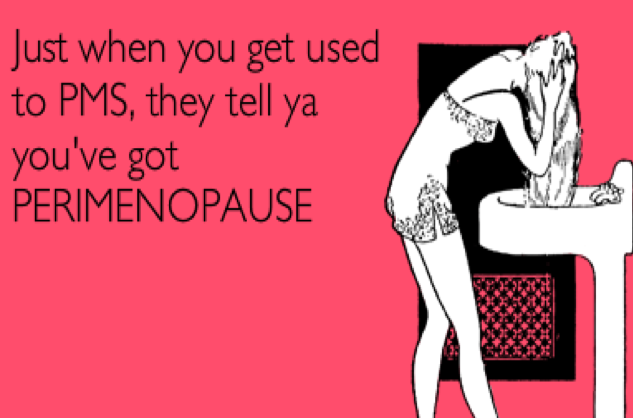Following up with the blog “The Menstrual Journey: From Menarche to Menopause” which we had posted previously, today we have decided to dive a little deeper into the symptoms of menopause, but before doing so, let’s just give you a quick brush up of the things we had discussed in that blog.
So, previously, we told you about the two important milestones in the journey of a uterus: Menarche – which marks the beginning of the reproductive cycle or say your menstrual cycle and Menopause – which marks its end. We also mentioned that this journey lasts up for about 35-40 years in a women’s life and throughout the journey, the hormones make sure they give the terror of a roller coaster ride making her go through PMS, Cramps, Pregnancy and what not!
In between the transition i.e. from menarche to menopause, there comes a stage called perimenopause. Continue reading to know more about it.
Perimenopause
Perimenopause is defined as ‘around menopause’ where you start experiencing signs and symptoms of menopause. It is also known as the ‘menopause transition’ as it starts several years before menopause. During this time, the ovaries gradually begin to make less oestrogen. The age where perimenopause usually begins in a woman is her 40s but it could start in her 30s or even earlier and lasts up until menopause when the ovaries finally stop releasing eggs. Typically, the average length of perimenopause is 4 years but for some, this may last only for a few months or even for 10 years and it finally ends when one goes 12 months without having periods, putting female reproduction to an end. During the last few years (1-2 years) of perimenopause, the drop in estrogen speeds up and that’s how many women encounter menopause symptoms.

Perimenopause Symptoms
The signs which indicate that a woman is in her perimenopause stage is listed below:
- Hot flashes
- Breast tenderness
- Heightened premenstrual syndrome
- Decreased libido
- Fatigue
- Mood swings
- Trouble sleeping
- Urinary urgency
- Irregular periods
- Vaginal dryness leading to discomfort during intercourse
- Urine leakage
- Concentration difficulties
- Forgetfulness
- Muscle aches
- Weight gain
- Night sweats
- Anxiety or irritability
- Changing cholesterol levels
When to see a doctor
If you experience any of the above-mentioned perimenopause symptoms, it’s completely normal. But there are various symptoms which you must convey to your doctor as these could not possibly be perimenopause symptoms but rather symptoms of a serious issue. The signs you must look out for are:
- Very heavy periods accompanied by clotting
- Period length much longer or shorter than usual
- Spotting between periods
- Spotting after sex
If any of these instances happen, one should definitely see a doctor in order to rule out the possibility of other causes.
FAQs
- What is perimenopause age?
- The time where one starts experiencing signs and symptoms of menopause. It usually starts in a woman’s 40s but can also start in her 30s or even earlier.
- How long does menopause last?
- When a woman goes 12 consecutive months without menstruation, it indicates that she has reached menopause. Menopausal symptoms usually last up to 4-5 years.
- What are the signs of perimenopause?
- Hot flashes, Breast tenderness, Heightened premenstrual syndrome, etc. (Refer blog)
- What is early menopause?
- Early menopause or premature menopause is when some women go through menopause before the average expected age.
- What is the average age for menopause?
- 46-50 years










3 Comments